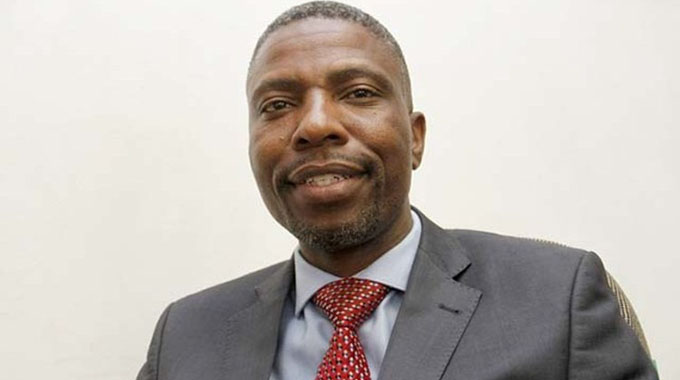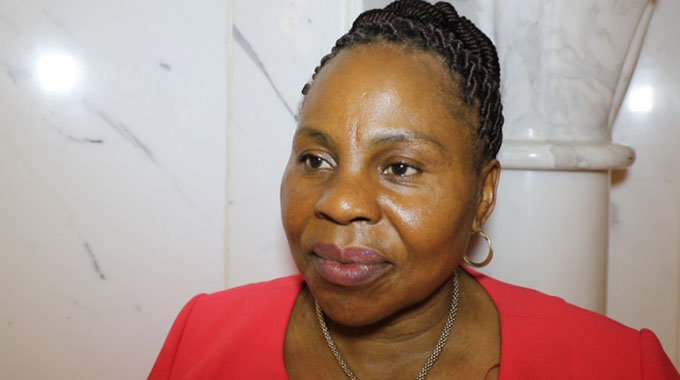Living in the past, infecting the future

Tinomudaishe Chinyoka Correspondent
A long time ago, before mobile phones and WhatsApp changed the way we communicate, before the telephone and radio, humanity communicated in person, needing to physically be in one place to pass on or receive messages.
While this was not always unduly problematic, it had tragic consequences in times of war, when whole battles were fought long after peace had been agreed on. The Battle of New Orleans is remembered as one such wasteful battle, fought long after a treaty had been signed in Ghent, Belgium, but before the news reached the US.
But it is not the only one.
In the same war, the British captured Fort Bowyer, but had to give it up to their war prisoners five days later when news reached them that they had in fact lost. And history knows Hiroo Onoda, the faithful leader of a Japanese detachment that fought to defend Japanese control of Lubang in the Philippines during the Second World War, whose stand lasted until 1972 because he simply refused to believe that the war was over.
It was only after his commanding officer, by then a bookseller in Japan, was asked to go and find him in his mountain hideout and break the news, that Onoda ended his fight, 29 years after the war had ended.
But, with new communication methods aplenty, you would think that we no longer have the risk of another Battle of New Orleans or our very own modern day Hiroo Onodas. You would think that, but you would be wrong.
On June 5, Harare saw a demonstration of just how unfortunate it is for people to be arrested in the past.
The MDC Alliance held their march for so-called electoral reforms. However, unlike New Orleans or Hiroo Onoda, neither of which affected the futures of the peace, this march sadly might. But before we get to that here are some glaring observations.
The right to freedom of assembly gives everyone a right to march and air their views. Our Constitution guarantees this right. International human rights law places a premium on this right and a lot of guidance exists on the duty of the state to respect the right and to facilitate assemblies. The African Commission of Human and People’s Rights has passed a General Comment on the issue.
When the MDC Alliance sent notification of an intention to march, the police responded with acknowledgement (not permission as none is required) and confirmation of the route.
Contrary to the half-baked critiques you will read about POSA, it is not the police that initiate suggestions on the route to be taken: the notification procedure itself says the organisers must state their intended route, so that law enforcement officials may adequately prepare by ensuring that traffic and any counter-demonstrations are not on the same route. International human rights law and particularly the practice of the Human Rights Committee do not have anything against a notification procedure and law enforcement practice on routes.
But what you will not read about in the so-called independent Press is that law enforcement officials refused to sanction a ZANU-PF counter-demonstration. Clearly, law enforcement officials assessed that there was potential for the second demonstration being provocative and likely to escalate the situation with the likelihood that the two marches would turn out to be violent.
But, whatever their reason, it is a fact that the police refused to sanction a ZANU-PF march and sanctioned an MDC Alliance march.
One of the reforms that the MDC Alliance has always clamoured for is the so-called “level playing field”.
This refers to conditions available that are uniform to all political parties. Clearly, law enforcement officials in this instance determined that this was best achieved by denying the rights of members of ZANU-PF to march. I do not agree – both marches should have been allowed. But, it happened. The point is, where in Robert Mugabe’s time as President could you have an opposition march given sanction at the expense of a ZANU-PF march? Yeah, I can clearly see how we don’t have reforms!
And speaking of Mugabe, my mind goes to the Battle of New Orleans and the hapless Hiroo Onoda. Footage of the march showed a good number of MUGABE MUST GO leaflets being held up by the marchers. It would be wrong to laugh; our own people had a saying: anebenzi ndeane rake, rikadzana unopururudza. They live among us; they are good for something, even if it is entertainment value.
Leading to the march, people were asking “what is the march about?” And others said, “Okay, so it is about reforms, which reforms do you want?”
Well, now we know. A completely revamped Zimbabwe Electoral Commission has created a completely new voters’ roll. The MDC went to court in the past to get an electronic copy of the roll, now every registered voter can check their status on the roll from the comfort of their home by simply sending a text.
Every voter knows their polling station. And, because every voter had to have their biometric data recorded, the only dead people on that roll will be those that passed after they registered, like my nephew Muchengeti Gerald Chinyoka (May his soul rest in peace!). These are the reforms we thought were needed.
But no, they want different reforms. As their banners said, they want Mugabe back so that they can run against him.
Faced with real leadership and a formidable President in ED, they want to live in the past and fight against their old foe, Mugabe. Law enforcement sets conditions where they get priority over ZANU- PF and they don’t see this as a level playing field; they want Mugabe back so that they can vote him out.
This is why one of them is in court now applying for Mugabe to be reinstated.
Last week at Muchengeti’s wake in Leeds, UK, I had a discussion with a group of Zimbabweans based there.
This was before the decision of the Constitutional Court on the Diaspora vote. I posited that I thought there was no right to a Diaspora vote because our elections were constituency-based, and that I thought that President Mnangagwa had made many improvements to the country justifying his election even by sceptics. They replied that nothing had changed because one of them had been to Zimbabwe in 2013 and water was coming out of taps with tissues and because POSA has not been repealed. Hiroo Onoda, I thought.
Less than two months before elections, and the only talk of violence involves something called MDC Vanguard and their intra-party acts of violence. Less than two months before the elections and law enforcement officials sanction an MDC Alliance march and refuse to sanction a ZANU-PF march.
Less than two months before elections and ordinary Zimbabweans can check their status on the voters’ roll from their mobile phones. Less than two months from the elections and not a single arrest for the crime of insulting the President, despite the number of times we see below-the-belt attacks of President Mnangagwa.
Like with the Battle of New Orleans and Hiroo Onoda, it is possible for combatants to fight on long after the war is over.
Their fighting on did not make the peace invalid. And luckily, it did not change the future of that peace.
Sadly, we have among us people that will fight yesterday’s battles until we don’t know when. Our prayers, all of us, must be for two things; their sanity and that before they are delivered, they don’t prejudice our futures by claiming that there are no free, fair and credible elections; because unlike Hiroo Onoda and the Battle of New Orleans, this is 2018 and the world is watching.









Comments